Section 7: LITHUANIA IN THE WORLD


THE VOICE OF INTERNATIONAL LITHUANIA
|
VilNews has its own Google archive! Type a word in the above search box to find any article.
You can also follow us on Facebook. We have two different pages. Click to open and join.
|
Sat, 18th August, 2012 - Posted by - (2) Comment

Tour guide: Aage Myhre
aage.myhre@VilNews.com

A rickety old bus runs past me in a busy, polluted Mumbai street. Suddenly I see
a little girl's face in one of the bus windows. The contrast between the old bus
and the beautiful child is striking. We are in India!
Sat, 18th August, 2012 - Posted by - (4) Comment

Tour guide: Aage Myhre
aage.myhre@VilNews.com

It is considered that around 90% of the approximately 80,000 Jews living in South Africa are of Lithuanian descent (the so-called Litvaks), which thus constitutes the largest pocket of Litvaks in the world! You are hereby invited to learn more about this unique Jewish community that still holds Lithuania alive in their hearts, museums and synagogues.
Sat, 18th August, 2012 - Posted by - (1) Comment

USA and the relationship between the Lithuanian-Americans and their homeland was substantially covered in our
VilNews editions during April and May 2012. Feedback from you, dear readers, is still wanted!
Click on the READ buttons below to access the articles:
1 |
 |
Healing the wounds between
|
| 1.1 |  |
“I am very pleased to see this intra-Lithuanian forum open up and give vent to these prejudices we have about each other” |
2 |
 |
The President and the World-Lithuanians on collision course? |
3 |
 |
A native American
|
| 3.1 |  |
“There are significant cultural differences between LT-Americans and Lithuanians that grew up in the Soviet Lithuania” |
| 3.2 |  |
“My impression is that many of us Lithuanian-Americans have thought about the possibility of retiring in Lithuania” |
4 |
 |
The Knights of Lithuania keep on fighting |
5 |
 |
Lithuanian ‘egg art’ on the Martha Stewart Show |
6 |
 |
Hordes of Lithuanians came to Pennsylvania to work in coal mines |
7 |
 |
Son of a Lithuanian coal miner |
8 |
 |
Easter and more –
|
9 |
 |
We will never forget or underestimate the role of Lithuanian Americans in our struggle for independence |
10 |
 |
Alexander & Ruth Bielaski
|
10 |
 |
TIME 1951: "The most invulnerable, most unfirable, most feared and most admired career woman in the U.S. Government." |
11 |
 |
Cultivating Lithuanian
|
12 |
 |
LT-American filmmaker
|
13 |
 |
Vanda’s story:
|
14 |
 |
Chicago 26 – 28 April:
|
15 |
 |
LT sportsmen in USA |
16 |
 |
Lithuanian-American Johnny Podres (1932-2008):
|
17 |
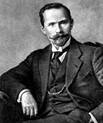 |
Antanas Smetona:
|
18 |
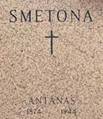 |
No flowers for Smetona |
19 |
 |
US-Lithuanian
|
20 |
 |
Would you like to join me to the Lithuanian Cultural Garden in Cleveland? |
21 |
 |
A visit to our Homeland
|
22 |
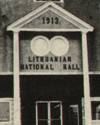 |
Saluting the Lithuanians of Brockton, Massachusetts |
23 |
 |
Boston, Massachusetts,
|
24 |
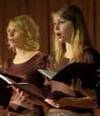 |
Boston Lithuanian Cultural "Subatvakaris" - 50 years |
25 |
 |
US-Lithuanian Jews
|
26 |
 |
“Why do you love
|
27 |
 |
Ona Šimaitė:
|
28 |
 |
Rūta Šepetys and
|
29 |
 |
What defines Lithuania?
|
30 |
 |
How Chicago became
|
| 30.1 | 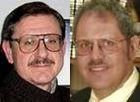 |
As vast as the waves of Lithuanian immigrants who crossed the ocean to start new lives thousands of miles from their native land |
31 |
 |
No LT leaders called
|
32 |
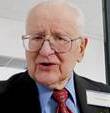 |
Sending e-mail to LT is like sending it to the black hole of the universe |
33 |
 |
Should there be gay
|
34 |
 |
Global Baltic ‘family
|
35 |
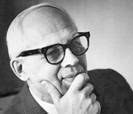 |
Nazi – not Nazi? |
36 |
 |
Juozas Ambrazevicius-
|
37 |
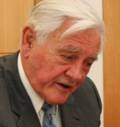 |
Good morning,
|
38 |
 |
U.S.-Nordic-Baltic cooperation |
39 |
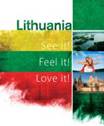 |
Message to all U.S.-Lithuanians:
|
Fri, 17th August, 2012 - Posted by - (0) Comment
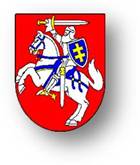

August 11-12, 2012
· AUGIS Lithuanian Pop & Folk Singer
· Sing a-long with Lynne Cox, Accordionist
· Malunas Dance Ensemble, Baltimore, MD
· Zilvinas, Dance Ensemble, Philadelphia, PA
· Gintaras Jr. Dance Ensemble, Mahanoy City, PA
· “Spins and Needles Guild” Weaving Demonstrations
· The Sensations Band
· Thomas Sadauskas: Lithuanian Genealogy Expert
· Pennsylvania National Guard
· Lithuanian Heritage Room
· Delicious Lithuanian Food
· Lithuanian Arts and Crafts:
Longest Running Consecutive Ethnic Festival in the USA!
Website: www.kofl144.weebly.com
Thu, 26th July, 2012 - Posted by - (3) Comment
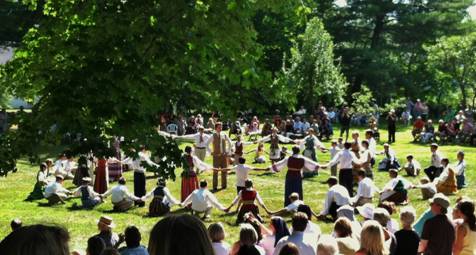
The annual Lithuanian mass and picnic, was held in Putnam, Connecticut, United States on Sunday, July 22nd, 2012.
The event was held at the grounds of the Sisters of the Immaculate Conception Convent, a beautiful field, with trees and a stone wall forming a perimeter. The day started off with celebration of Catholic mass, in Lithuanian. After the mass there were all sorts of Lithuanian food and beverages; Saltbarsciai, kugelis, chicken dinner, cabbage, Lithuanian Kielbasa, and the Lithuanian beverage gira, to name a few. The sisters wonderful breads sold out fast, they are so popular. Then, there were vendors in the outdoor area, selling Lithuanian T shirts, music, books, jewelry, folk art, and many other items. There were MANY picnic tables, and people also bring their own picnic food as well. Lithuanians travelled from all over the Northeast of USA to come to the event.
Letter and pictures: Dana Petkaityte
Hello Aage,
The picnic was wonderful! It was on the grounds of the Sisters of the Immaculate Conception (convent). The day started with a Catholic mass celebrated outside, by three Lithuanian priests. The activities began after mass. The sisters sold their famous bread (duona), either rye or raisin bread was available. It always sells out quickly.
There was music playing over the sound system. Most was recorded music, and some music and song was live. The young people from Camp Neringa (a Lithuanian-American summer camp located in the state of Vermont) performed Lithuanian songs and dances in traditional folk costume.
There was an area with vendors, selling Lithuanian related items. Such things included clothing, books, music, and amber jewelry. I purchased a tank top (shirt) to put on my dog "Kola". She is a German shepherd (Vokieciu aviganis, or "vilkas"). I thought it was appropriate that she should have a shirt with the "Gelezinis vilkas" on it! Some other people brought their dogs, too. There was even a pony for children to ride!
Many people walked into the wooded area on the grounds, to visit what is known as Father Yla's castle. It is a castle, I believe in the spirit of Mindaugas, built by Lithuanians in the 1950s, under the supervision of Father Yla. My own father, I'm proud to say, is one of the people who helped to build the castle. I took some pictures of it this year, but I also have some other ones from last year. I will send them in the 4th email. There were some young ladies doing some sort of presentation about the castle and Lithuanian history, but I'm sorry to say I missed that presentation. They wore 16th century style costumes.
Lastly, there was the food! There was all sorts of food to be eaten; Kugelis, rugstus piena; sausage with bread, potato and sauerkraut; saltibarsciai; chicken with carrots, peas and rice; gira to drink, and pastry and ice cream for dessert. There were also "hot dogs" for the American taste. It was all very delicious!
Mon, 23rd July, 2012 - Posted by - (2) Comment
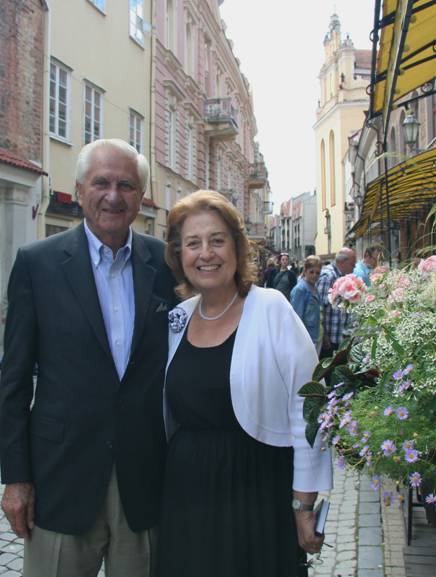
Regina Narusiene leaves the position as President of the World Lithuanian Community now in August. Here with her husband Bernard in Vilnius’ charming, bustling Pilies gatve on a beautiful July Sunday morning.
Text & photos: Aage Myhre, editor-in-chief
aage.myhre@VilNews.com
“We need new enthusiasts, young people in our worldwide organization, the World Lithuanian Community (WLC). We need Lithuanians, wherever in the world they live, to participate more actively in the maintenance and development of the Lithuanian identity and heritage.”
I wander through beautiful Vilnius Old Town with Regina Narusiene and her husband Bernard, both of them successful Chicago attorneys, this sunny July morning.
We hear voices in all languages, laughter, sounds. It smells of food from all world corners around us. Vilnius has become a hugely popular destination for tourists from all over the globe. I think back on how this street looked 22 years ago, when I came here for the first time. The pictures above and below are from the same street, one taken now in warm July 2012, one taken in November 1990 when coal was still dumped on the sidewalks from the horse-drawn carriages.
The lady I walk with, Regina Narusiene, has been President of the World Lithuanian Community (WLC) since 2006. Before that she led the Lithuanian American Community Inc. (LAC) for six years and then was the president of the Board of Directors of that Community for another 6 years. Now she has finished her second term for WLC and will leave the organization in a few days, at a meeting here in Vilnius starting 6th of August, and she is concerned that the recruitment to international Lithuania has become insufficient.
For six years she has lived a busy double life. Through part of the year, she stays with husband and family in a small village 100 km northwest of Chicago, but it’s not usual to see her for long periods at her home in Vilnius, working intensely on behalf of ‘the international Lithuania’ – this nation outside the nation that includes about almost as many Lithuanians as the country’s resident population.
WLC is now suffering from what is commonly known as an "ageing population" even if there in recent times has been some amazing enthusiasm from "second, third and fourth generation Lithuanians”, not least here in VilNews. An input of new members and enthusiasts is, however, vital to ensure the long-term continuity of this important Lithuanian tradition and movement around the world. WLC needs YOU!
If you've previously taken part in other forms of organisations you'll have a good head start. Naturally, if you've been active in Lithuanian groups or institutions WLC would particularly like to hear from you. But what if you are a complete beginner? Don't worry, you'll still be made very welcome. Don't let the apparent complexity of what this organization does put you off!
I have agreed with Regina that she will be quick to answer everyone who writes her with questions, expressing any sort of readiness to participate in the works of international Lithuania.
So please do not wait, write her an email as soon as you can. Her email address is rbnar213@gmail.com

November 1990, my first visit to Vilnius: Delivery of coal to properties in Pilies g. right in the centre of the city. With horses. People pick it up in burlap sacks.
Other times, the horse driver is simply shovelling the coal out on the sidewalk in front of the buildings on his ordering list.
Mon, 23rd July, 2012 - Posted by - (0) Comment
The Lithuanian World Community (Lithuanian: Pasaulio lietuvių bendruomenė or PLB) is a non-governmental and non-profit organization established in 1949 that unifies Lithuanian communities abroad. The Constitution of the Lithuanian World Community declares that it consists of all Lithuanians living abroad. The Community is active in 36 countries, including representation in Lithuania.
On February 7, 1932 a fund to support Lithuanians in foreign countries was established in Lithuania, making one of the first attempts to maintain closer ties between the Lithuanian diaspora and Lithuania. Three years later the first Lithuanian World Congress was held in Kaunas, which established the Lithuanian World Union. The mission of the Lithuanian World Union, also drafted during the Congress, called for a cultural and economic union of Lithuanians in different countries. However World War II and Lithuania's occupation interrupted the work. Many educated Lithuanians fled to western countries, hoping to avoid approaching Soviet repressions. In 1946 the Lithuanian community in Germany established the Lithuanian Deportees Community, which aimed at consolidating and helping Lithuanians in Germany. In 1949 Lithuania's Supreme Liberation Committee (Lithuanian: Vyriausiasis Lietuvos išlaisvinimo komitetas or VLIKas), established in 1943, delivered the Lithuanian Charter and the Constitutions of the Lithuanian World Community, which solemnly pledged to support and unite all Lithuanians outside Lithuania's borders and promote Lithuanian culture and language abroad. The Lithuanian Charter also proclaimed:
· a nation is a natural community of people;
· a human has birthright to freely profess and promote his nationality;
· a Lithuanian remains a Lithuanian everywhere and always;
· his parents maintained the Lithuanian national consciousness; a Lithuanian relays it to the generations yet unborn, to remain alive;
· a language is the strongest tie to the national community;
· the Lithuanian language is the most precious national honour for a Lithuanian national solidarity is the highest national virtue.
Thu, 31st May, 2012 - Posted by - (0) Comment

The new generations are leaving the country in droves and very few from the country's diaspora groups plan to come home to contribute to the reconstruction of this once fine and proud country.
Our series of articles through April and May has revealed enormous discrepancies between Lithuania's current leadership and the large group of Lithuanians living outside their homeland.
It is assumed that the country's best educated and economically active segment of the population now lives in Western Europe, the USA and sometimes other countries, but that today's leaders do not do much to reach out to them, start the kind of communication that is necessary to get this country on its feet again.
Obviously, this is tragic. All Lithuanians love their homeland, but feel that the government and the leadership generally do little to facilitate for the country to grow healthy and successful.
Meanwhile, the young, non corrupt professionals are very reluctant to assume political office. "We do not want to stick your hand into this overgrown wasp's nest," we have heard several say. The result is that the new generations are leaving the country in droves and that very few from the country's diaspora groups plan to come home to contribute to the reconstruction of this once fine and proud country.
We proposed a few days ago that Lithuanians outside their home country should start coming back home to contribute to new growth and better living conditions here. These are some of the responses we have recorded.
----------------------------------------------------------------------------------------------------------------------

Viktorija Ruškulienė
Once only corrupt government and retired elderly are left, Lithuania's economy will reach the very bottom and push itself up
Once only corrupt government and retired elderly are left, Lithuania's economy will reach the very bottom and push itself up: things will start to change, hopefully for the better. As there will be no one to be robbed, the ex-KGB-today-"democratically"-elected-mob-government will follow the path of their foreign invested funds and retire outside of Lithuania. Hopefully there still will be some Lithuanians willing to return back to their homeland...
Some more realistic politicians suggest to open Lithuanian job market for Belarus young professionals and political refugees, with a promise of European citizenship after 7 years working and paying taxes in Lithuania. This will become some "injection" to keep economy floating at the level it is today, but what will happen if Belarus elects new government and joins EU? Will people from Asia's developing countries be interested in cold climate and hopeless economy refuge?
Lithuania loves money, sent by expatriates, though...
----------------------------------------------------------------------------------------------------------------------

Grant Gochin
Lithuania does NOT love the expatriate community. If the country of Lithuania rejects us, why maintain our Lithuanian identity?
Lithuania does NOT love the expatriate community. Rather, LT does EVERYTHING possible to reject them. Loyalty has to work both ways. The days of the state being a slave-master and the citizens being mindless obedient drones are over.
If the country of Lithuania rejects us, why maintain our Lithuanian identity?
The people have to protest. If nobody does, nothing will improve.
Fri, 25th May, 2012 - Posted by - (28) Comment

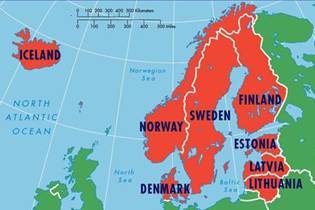
By Dr. Stasys Backaitis
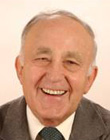 Conference on U.S.-Nordic-Baltic Cooperation:
Conference on U.S.-Nordic-Baltic Cooperation:Wed, 23rd May, 2012 - Posted by - (0) Comment

There is no head of state in the world, other than former President Adamkus, who has been running 100 meters in 10.8 seconds... This reveals the newly released 400 page sports biography that has been prepared by sports journalist Maryte Marcinkevičiūtė. It is early morning in May 2012. I am here to interview His Excellency, President Valdas Adamkus.
Photo: Aage Myhre.
President Valdas Adamkus interviewed by Aage Myhre
aage.myhre@VilNews.com
Former President Valdas Adamkus welcomes me in his office in the rear wing of the Presidential Palace in Vilnius Old Town this early May morning. We are approaching the end of our series on the relationship between the Lithuanian-American community and the home country, and I have come here to the ex president's office to learn more about how he, as the world's most famous Lithuanian-American, looks at this relationship. I would also like to hear more about his own history in Lithuania before and during World War II, about his years in Chicago and about his time as a politician and President of Lithuania for most of the years of 1998-2009.
I must admit that I sometimes felt Adamkus was too weak in his job as president. I often wished that he more pronouncedly had called the country's nomenclature to account for their transgressions against the nation's population, and I felt much more should have be done to fight corruption, injustice, intolerance, neglect of society's weaker groups, violence, crime and other misdeeds that Lithuania is still so tragically suffering under.
But after sitting with him for nearly two hours this morning, it slowly dawned on me how impossible it must have been to change attitudes and deeds in a country that to such a high degree had been brainwashed and subjected to almost unbelievable abuses over the years under Soviet tyranny. My respect and understanding of President Adamkus grew significantly during this interview.
Thu, 17th May, 2012 - Posted by - (22) Comment
 Darius Udrys |
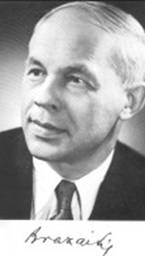 |
Opinion: Darius Udrys
If there’s one thing civilized people should all be able to agree upon, one would think that it would be not to make heroes out of Nazi collaborators. Yet here in Lithuania we are about to witness just such a moral travesty.
Somebody apparently decided it would be a good idea to move the remains of Juozas Ambrazevicius-Brazaitis, acting prime minister of Lithuania during the first months of the Nazi occupation, from the United States to Lithuania. Buried previously in Putnam, Connecticut, he has been exhumed and will be reinterred in Kaunas this Sunday with as much fanfare as can be mustered among the clueless and the callous.
Ambrazevicius-Brazaitis is no hero.
Tue, 15th May, 2012 - Posted by - (7) Comment
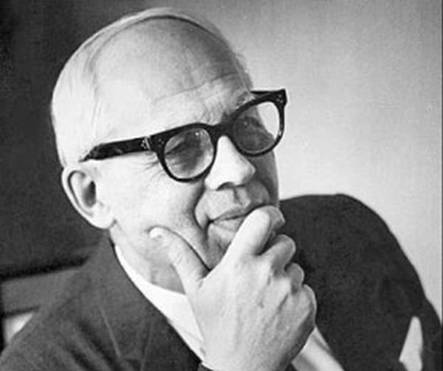
Juozas Ambrazevičius or Juozas Brazaitis
The controversial case of Juozas Ambrazevius Brazaitis' (1903-1974) remains being returned to Lithuania for re-burial this week
Juozas Ambrazevičius or Juozas Brazaitis was a Lithuanian literary historian, better known for his political career and nationalistic views. He was acting Prime Minister of the Provisional Government of Lithuania, the so-called Nazi puppet government, from 23 June 1941 to 5 August 1941.
He later joined an anti-Nazi movement, until he escaped from Lithuania by the end of WWII.
A document by the US Committee on the Judiciary, House of Representatives, from January 1975, states that Brazaitis was removed from the list of Alleged Nazi War Criminals and that further investigations had been stopped. But Efraim Zuroff, leader of the Simon Wiesenthal Centre in Israel, says: "At the time the Americans didn't have the data that clearly point to his connection to the Nazis and to anti-Jewish violence." Here is a copy of the 1975 document...

Mon, 14th May, 2012 - Posted by - (2) Comment

In 2010 the Lithuanian Attorney General's Office insisted security was the only reason it had asked the court to annul a license for what would have been Lithuania's first gay pride march in Vilnius. "Whose fault would it be if anyone gets hurt? It might look like we are homophobic, but I am not sure if we'd look better with pictures of violence on TV," Attorney General Raimundas Petrauskas said. He believed radical and violent groups are organizing protests and provocations against the participants of the gay march.
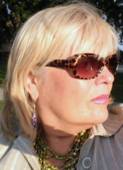 Irene Simanavicius, Toronto, Canada |
Today homosexuality is discussed everywhere we go. It is shown through the television, movies, and books. Being a Homosexual in today’s society comes with many hardships. Although it has been more frequently discussed and talked about, there is always discrimination. Types of discrimination towards someone’s sexual preference are name-calling, hate crimes, firing from a job, violence, murders, and vandalism of property. Unfortunately, when you are not part of the norm you are picked on and discriminated against. Homosexuality is becoming a more common and open thing but it still has people disagreeing with its moral values. Homosexuality has many issues that |
It has to face in the future. As a society today, we will have an open mind to homosexuality but there will always be discrimination by someone, somewhere
 Viktorija Ruškulienė, New Jersey, USA |
“Lithuania has a great distance to walk towards democracy. Cases presented to court cannot be used as a statistical data, as the Lithuanian judicial system is corrupt and not working in many cases, people do not resolve their problems by law, as it’s done in other European countries. For example, police will not assist street or domestic violence incident until a murder or serious injuries take place. The rape victim has to have two witnesses of the “rape in action”, otherwise the case will be dismissed (my friend was in this unfortunate situation: raped by a policeman and had no witnesses).She was told that case will never reach the court.” |
Mon, 14th May, 2012 - Posted by - (0) Comment

U.S. Senator Dick Durbin, who traces his roots to Lithuania, spoke on the
topic of “the unbreakable U.S.-Baltic partnership,” and referred to
the conference as “a family reunion.”
Photo: Jurgis Anysas.
By Ellen Cassedy
“The Global Baltics: The Next Twenty Years” was the subject of the 23rd biennial conference of the Association for the Advancement of Baltic Studies (AABS). The conference took place April 26-28 at the University of Illinois at Chicago.
“We are truly the global Baltics,” said Robert Vitas, chair of the Chicago-based Lithuanian Research and Studies Center, in an opening address. “Wars, migrations, and deportations have wrenched our people beyond our national boundaries. Lithuania is home in our hearts, but the countries of the diaspora are also home.”
Fri, 11th May, 2012 - Posted by - (0) Comment

Rimgaudas "Rim"
Vidziunas
“The LT government didn’t call to say they love me.”
This was the headline of an article we brought earlier this week, about Rimgaudas "Rim" Vidziunas in Arizona, USA. Rim and many other American-Lithuanians have been doing much to keep the memory of Lithuania alive. When I asked if he ever heard from the Lithuanian authorities, he told me that no one from the homeland had ever told him or other refugee children that they are loved by the ancestral homeland, that they are welcome back now that the communism yoke is lifted off.
It seems, unfortunately, that today’s Lithuanian leadership has not done much to restore contact with this most valuable of all resources, namely its own people around the globe – the diasporas.
And even worse is that when these 'refugee children' are trying to make contact with Lithuanian leaders themselves, they will very often not even receive replies.
Sadness pit dug even deeper.
Here a couple of emails we received some time ago, from two American-Lithuanians born in their home country before the war:
____________________________________________________________________
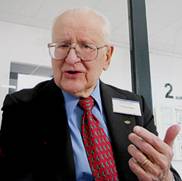
Vytautas Sliupas
Dear Aage:
Lithuania's business people and government officials are yet to learn the necessity of good communications. Without a two way communication there is no possibility for further contacts. One of the most frustrating experiences I had was in e-mail (before that it was in regular "snail mail") communications. I would write and write but receive no reply (with only a few exceptions).
When I was working, our management had a rule - "answer all letters received in not more than three days. If there is no answer to be given, than at least acknowledge the receipt".
One of my American colleagues, who was sincerely trying to help Lithuania, said "Sending e-mail to Lithuania is like sending it to the black hole of the universe. Everything goes one way and nothing comes back".
No wander he is now disenchanted and helping others.
Vytautas Sliupas, P.E.
www.aukfoundation.org
Burlingame, California
____________________________________________________________________
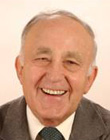
Stan Backaitis
Dear Aage,
Several months ago I had arranged a visit between the minister of energy and a CEO of an important nuclear reactor manufacturer. The meeting was supposed to be for the benefit of the minister on information of what is forthcoming in the future, particularly in small reactors and the possibility of establishing a European affiliate of the company in Lithuania.
The minister graciously extended an invitation to the CEO, but the minister's secretariat refused to extend even the slightest courtesy to this visit, such as picking up the visitor from the airport and transporting him to the meeting, setting up a meeting agenda, or even providing to the visitor's office the address of the ministry. They claimed that this was just another sales visit, and the visitor should take care of everything on his own. As a result the CEO canceled the meeting and eventually went to London. The European affiliate was established in the UK. Thus through such arrogance another opportunity was lost.
There is a lot truth in the German proverb "Dummheit und Stolz wachsen auf einem Holz".
Best regards,
Stan Backaitis
Washington, USA
Tue, 8th May, 2012 - Posted by - (0) Comment
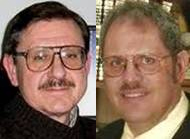
Boris Vytautas Bakunas (left)
has much good to say about
Frank Passic’s “Chicago
article” here in VilNews
Dear Mr. Frank Passic,
How can I thank you for your article How Chicago Became Lithuania’s Second Capital?
Its scope is as vast as the waves of Lithuanian immigrants who crossed the ocean to start new lives thousands of miles from their native land. .
Until I read your article, I didn’t know that Bridgeport, the Chicago neighborhood, where I spend the happiest years of my childhood, is said to have gotten its name from Ansas Portas, who owned land on the south side of the Chicago River.
Nor did I know of the 18 men who were the first Lithuanians to set foot on Chicago as part of a railway crew. I can easily imagine the grime on their faces and their calloused hands as they trudged home to their families after toiling all day in the railroad yards.
Nor was I aware of the small token “chips” that struggling Lithuanian societies issued in order to raise meager sums to support the building of their cultural institutions. Those meager sums added up and helped pay for the bricks that built institutions where Lithuanians gathered to preserve their customs and worship in their native tongue.
Your article is a source of inspiration for all Lithuanians and their descendants. It shows how fiercely Lithuanian immigrants fought to preserve their cultural heritage. With little money but with great determination, they established organizations, published Lithuanian newspapers, built churches, schools, and centers of culture.
VilNews e-magazine is published in Vilnius, Lithuania. Editor-in-Chief: Mr. Aage Myhre. Inquires to the editors: editor@VilNews.com.
Code of Ethics: See Section 2 – about VilNews. VilNews is not responsible for content on external links/web pages.
HOW TO ADVERTISE IN VILNEWS.
All content is copyrighted © 2011. UAB ‘VilNews’.